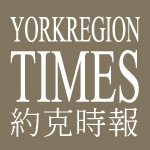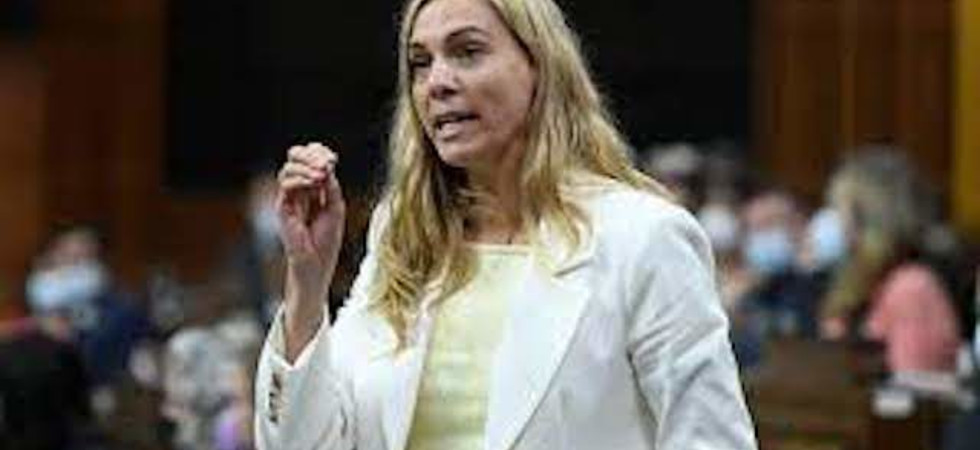Minister St-Onge announces new measures to improve accountability and foster a safe and sustainable culture change in sport
The Canadian sport system must continue to put the well-being of sport participants first to ensure their physical and mental safety.
Today, the Honourable Pascale St-Onge, Minister of Sport and Minister responsible for the Economic Development Agency of Canada for the Regions of Quebec, announced new actions that the Government of Canada is taking to improve governance of federally funded sport organizations, enhance safe sport practices, and amplify the role of athletes in decision making.
The following measures are part of an ongoing process toward a more accountable and safer sport system where the well-being of sport participants is top of mind.
Governance
Good governance practices are a necessary requirement for healthy, safe, and inclusive sport environments. To that end, Minister St-Onge announced that, to receive federal funding, all national sport organizations (NSOs) will be required to fully adopt the foundational governance principles in the Canadian Sport Governance Code by April 2025. These principles include precise target requirements for diversity on boards of directors, parameters around board independence and term limits, proper training for board members, and various requirements regarding transparency. The Code is evolutive and will be updated in the context of evolving best practices.
Sport Canada’s Compliance and Accountability Unit
As announced in Budget 2023, to ensure it can better monitor and hold funded organizations accountable, Sport Canada will create a new compliance unit with dedicated resources. The compliance unit will work with NSOs and external experts on the development of concrete action plans with clear indicators on governance, safe sport, and athlete representation. These plans will need to be in place by April 2024 to access Government of Canada funding.
Non-disclosure agreements (NDAs)
Non-disclosure agreements or non-disparaging clauses should never be used to prevent athletes and other sport participants from disclosing maltreatment they have experienced or witnessed. Minister St-Onge highlighted that a revised Athlete Agreement, developed by AthletesCAN, makes it clear that athletes’ rights under the Universal Code of Conduct to Prevent and Address Maltreatment in Sport (UCCMS) cannot be restricted. The language in the Athlete Agreement will be a requirement for all NSOs to integrate. Sport Canada, through funding agreements with NSOs, will prohibit any NSO contracts, policies, procedures, or actions from restricting participants’ rights under the UCCMS, in line with national efforts to that regard.
Athletes at the heart of decision-making structures
The voice of athletes and their capacity to engage in the national sport system must be prioritized and protected. Minister St-Onge announced that NSOs will be required to have an athlete representative on their board of directors, and Sport Canada will work with the sport community to achieve this objective. Sport Canada will dedicate $300,000 in funding for AthletesCAN to strengthen its capacity as athlete leaders, to collaborate across the sport system, and to support governance training opportunities so that athletes are fully prepared to take on governance roles. In addition, to ensure Sport Canada’s work is informed by the athlete perspective, a permanent Athlete Advisory Committee has been established. The composition of the Athlete Advisory Committee, along with the launch of a Sport Canada athlete internship, will be announced soon.
Maltreatment education and prevention
Sport Canada will work with partners in the sport system and dedicate $1 million in funding through the Sport Support Program to develop robust, consistent, and system-wide promotion of the tools and resources regarding harassment, abuse and discrimination, such as the UCCMS. The Canadian Olympic Committee has committed to match the funding.
Standards and certifications for coaches
Good coaching practices based on an understanding and awareness of acceptable behaviours, as well as thorough and consistent screening and certification of coaches, are essential to provide safe training environments. Funding of $250,000 will be provided to the Coaching Association of Canada (CAC) to ensure that all development and national team coaches attending international events are thoroughly screened and have the appropriate coaching certifications. This will include comprehensive background checks and training on the UCCMS. This will mean that athletes can expect consistent and thorough screening of NSO coaches. The CAC will also develop training for international coaches to help them understand Canadian values and norms and acceptable behaviours.
Public registry of sanctions
Minister St-Onge highlighted that the Sport Dispute Resolution Centre of Canada’s Abuse-Free Sport program will establish, within a year, a public registry of individuals who have been sanctioned under the UCCMS and whose eligibility to participate in sport has in some way been restricted.
Board of Directors nomination process for the Sport Dispute Resolution Centre of Canada
The mission of the Sport Dispute Resolution Centre of Canada (SDRCC) is to provide dispute resolution services for sport disputes, expertise and assistance regarding alternative dispute resolution. It is also the organization mandated by the Government of Canada to establish the Abuse-Free Sport program, including the Office of the Sport Integrity Commissioner (OSIC). While OSIC operates as an independent division of the SDRCC, there has been public criticism recently about the perceived independence of the SDRCC and OSIC from the Government of Canada. To address those concerns, the Minister will review the current merit-based process and implement greater transparency for recruiting, nominating and appointing members to the SDRCC’s Board of Directors.
Abuse-Free Sport program
As of April 1, 2023, all NSOs must be a Program Signatory to the Abuse-Free Sport program, including the services of the Office of the Sport Integrity Commissioner, to receive funding from the Government of Canada.
Quotes
“Looking out for athletes’ well-being is my top priority as Minister of Sport. Sport can’t only be about medals and podiums. Athletes must have a greater voice at all levels of decision making. The concrete measures I have announced today are part of a long-term shift to turn the tide on a much-needed culture change in sport. The new mandatory requirements will increase the accountability of sport organizations, improve governance practices, and prioritize athlete representation in decision-making structures. To help guide our next steps, I look forward to receiving the reports from the two parliamentary committees studying safety in sport in Canada that have heard the voices of many across the sport community over the last few months.”
—The Honourable Pascale St-Onge, Minister of Sport and Minister responsible for the Economic Development Agency of Canada for the Regions of Quebec
“The Canadian Paralympic Athletes’ Council is in support of today’s announcement, which is another step in creating the change needed to set a stronger foundation for safe sport. These initiatives will enhance safe sport measures and ensure greater compliance and support for a safer, more inclusive sports system in Canada, while increasing athlete leadership across the board. Athlete leadership is central to creating a stronger, better system for all who participate in sport, and Paralympians must be at the decision-making table.”
—Jeremy Hall, Vice-Chair, Canadian Paralympic Athletes’ Council
“Today marks a pivotal day for the Canadian sport system, creating a strong foundation from which we can continue to build. We applaud Minister St-Onge for taking the necessary steps to ensure stronger governance, more transparency, and meaningful athlete engagement throughout the sport system. The inclusion of Athlete Representatives on all boards of NSOs, the creation of the Sport Canada Athlete Advisory Council, and bolstering support for Athlete Representative groups demonstrate a shift to ensure that athletes are partners in the sport system, and a clear message that that athletes’ voice and perspectives matter. We are grateful to the Minister for continuously engaging us in dialogue to inform this reform. We look forward to continuing this work and using this momentum to build a stronger sport system for all.”
—Rosie MacLennan, Chair, COC Athletes’ Commission
“Minister St-Onge has one of the hardest tasks, and that is rebuilding the culture and trust of the sports system in Canada. In order for that to happen, she needs to start with a strong foundation, and that is what she has started to establish with the direction of Safe Sport and mandatory transparency from NSOs when it comes to equity, diversity and inclusion. Once the foundation has been completed, it is now up to the rest of the sports community to do their part and help change the sports culture so not only is it safer for all involved, but it is also inclusive and welcoming.”
—Shauna Bookal, Manager of EDI & Student Experience, Ontario University Athletics
“Today’s announcement represents a crucial development in our continued advocacy as the elected representatives of over 6,000 current and recently retired national team athletes. This will set the foundation for the fundamental changes we have been lobbying for at the federal level and give athletes the voice and opportunity as active partners in the Canadian Sport System. We are grateful to the federal government for this important additional funding and their confidence in us to empower and educate athletes as participants in moving towards a safe, welcoming and inclusive sport experience together with our sport and athlete representation partners.”
—Erin Willson, President of AthletesCAN

